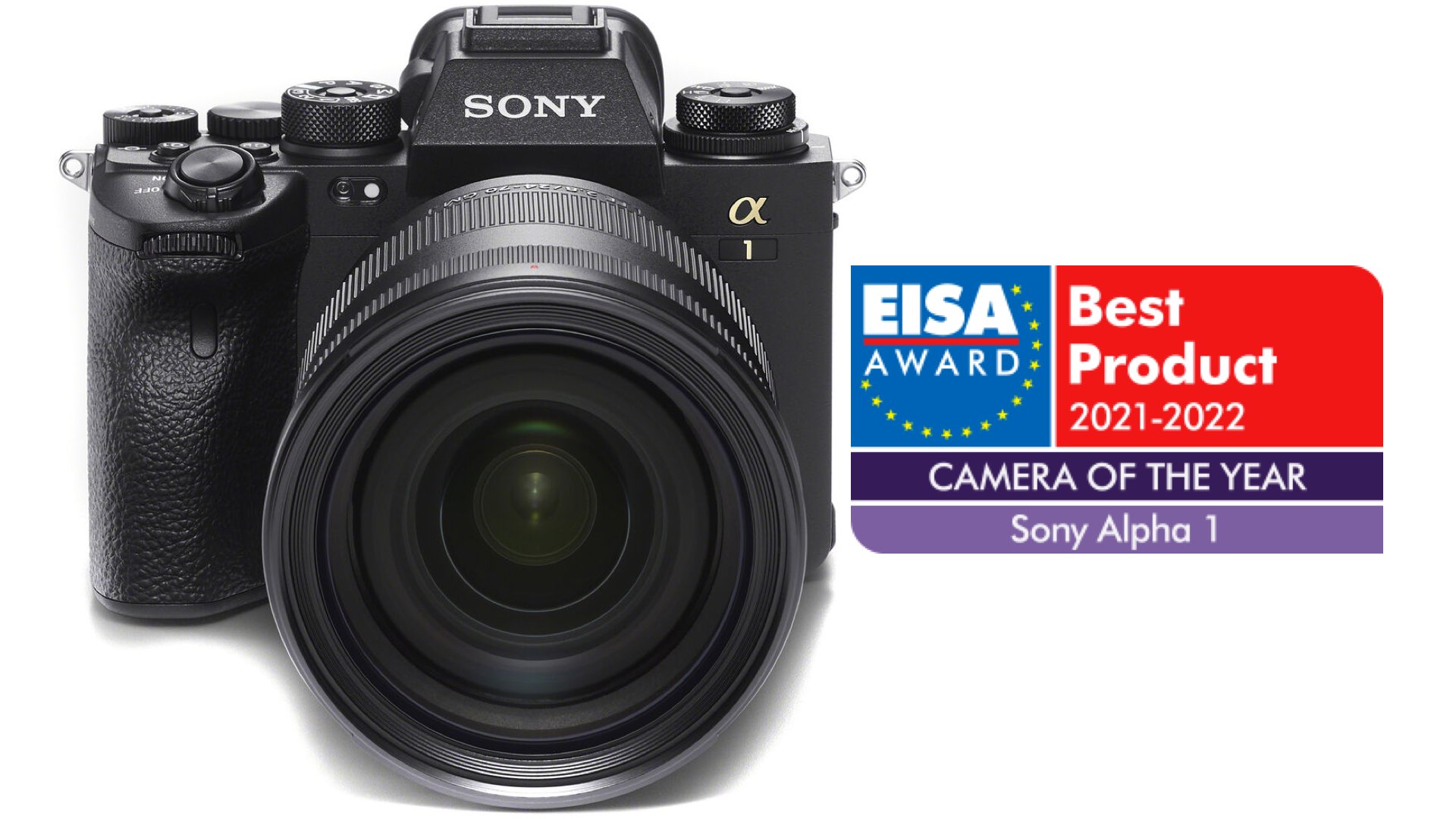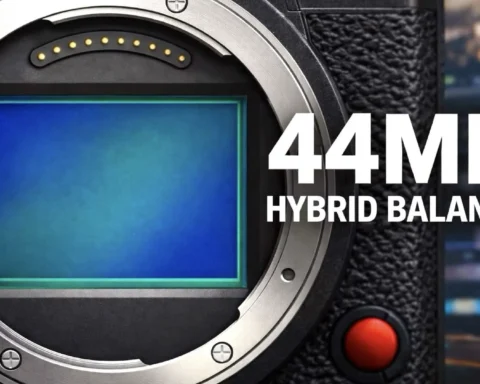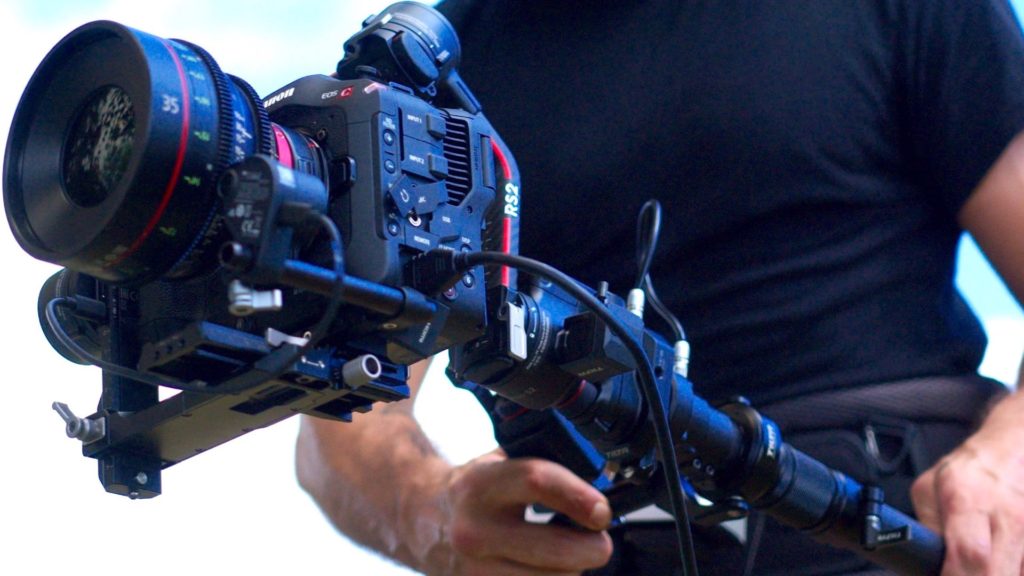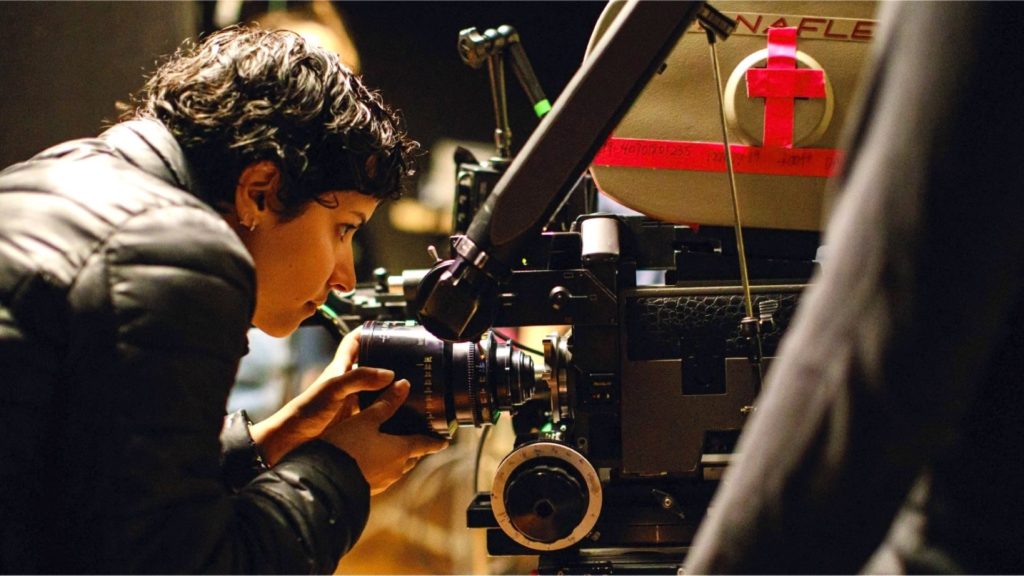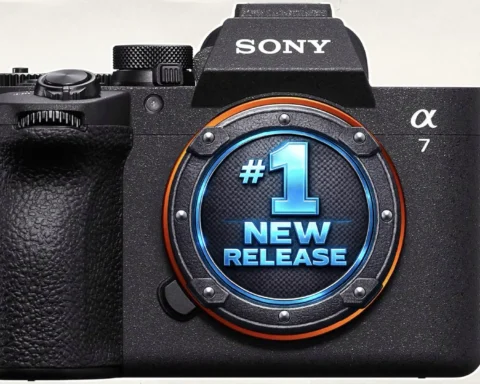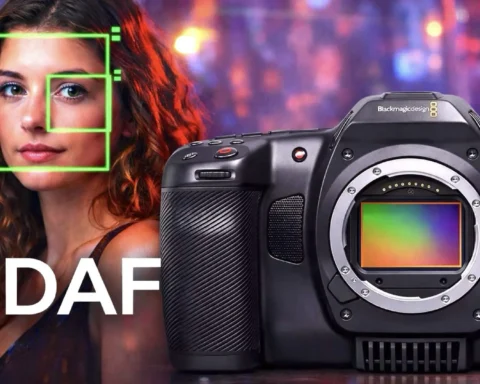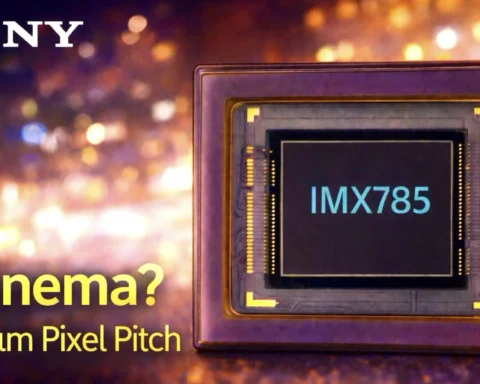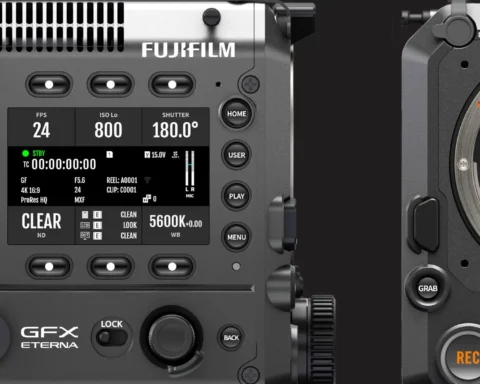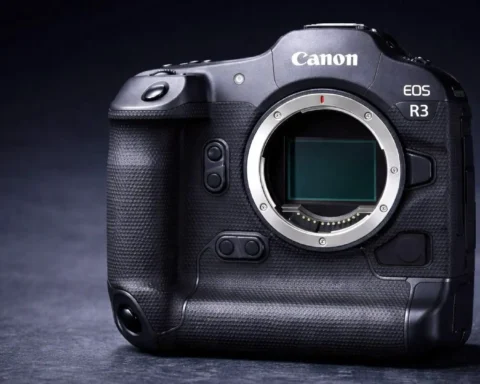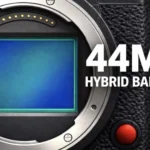EISA (Expert Imaging and Sound Association) has announced its awards regarding products related to photography. Among the winners are cameras like Canon EOS R5, Nikon Z 6 Mark II, Fujifilm GFX 100S, and more. However, the Sony Alpha 1 has taken the most prestigious prize in the Best Product category: “The Camera Of The Year”. Watch the winners below.
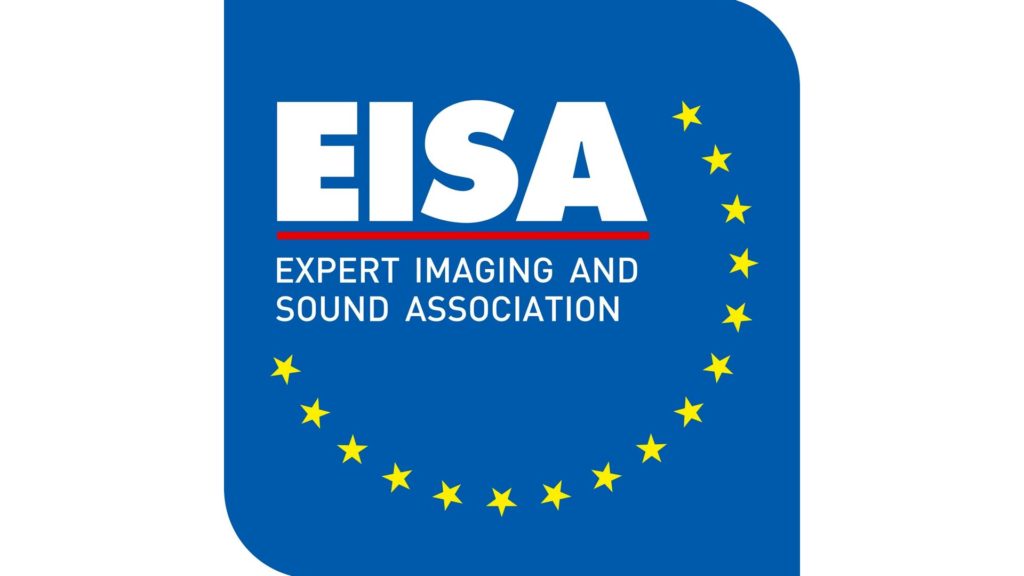
EISA Awards
EISA stands for the Expert Imaging and Sound Association, but it could also stand for Excellence, Innovation, Style, and Achievement. EISA is the unique association of 50 special interest magazines from 20 European countries. EISA started in 1982 when the editors-in-chief from five European photo magazines came together to select “The Camera of the Year” for the first time. For now, EISA includes 50 magazines from 20 different European countries joined together to form “The world’s most prestigious multimedia magazines association”. The six categories under consideration are Audio, Video, Home Theater, Photography, In-Car Electronics Electronics, and Mobile Devices. We’ll focus on the Photography category, obviously. Let’s explore which cameras won, and what EISA thinks about them.
Sony Alpha 1: “Camera Of The Year”
EISA description: “With the Sony Alpha 1, photographers no longer face a choice between high resolution or high speed. Instead, it delivers 50-million-pixel images at up to 30fps with an uninterrupted blackout-free view in its electronic viewfinder, thanks to its unique full-frame stacked Exmor RS CMOS sensor with integrated memory and a powerful BIONZ XR processor. The fast sensor readout enables accurate focus and exposure tracking during burst shooting, while the dual-driven shutter system allows flash sync up to 1/400sec and electronic shutter flash sync at up to 1/200sec. For videographers, the Alpha 1 offers up to 8K (7680×4320) 30p movie recording. This really is the one camera that does it all”.
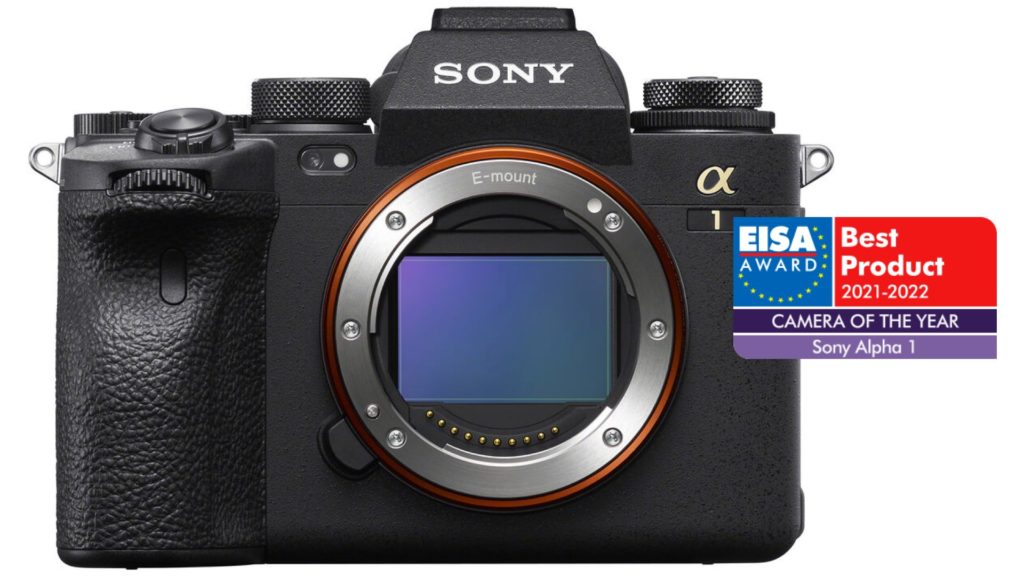
The Sony Alpha 1 is really is the one camera that does it all.
Nikon Z 6 Mark II: “Advanced Camera”
EISA description: “The Nikon Z 6II is a versatile camera with a 24.5-million-pixel BSI-CMOS full-frame sensor which can record video up to 4K Ultra HD at 60fps. Its next-generation autofocus system can work in light levels as low as -4.5EV, while two EXPEED 6 processing engines provide faster image processing and a larger buffer capacity for continuous shooting compared to its predecessor. The Z 6II also gains dual card slots, one for CFexpress/XQD and one for standard SD. It can be powered via its USB-C interface and is fully compatible with a vertical battery grip. It’s one of the most accomplished cameras available for serious enthusiast photographers”.
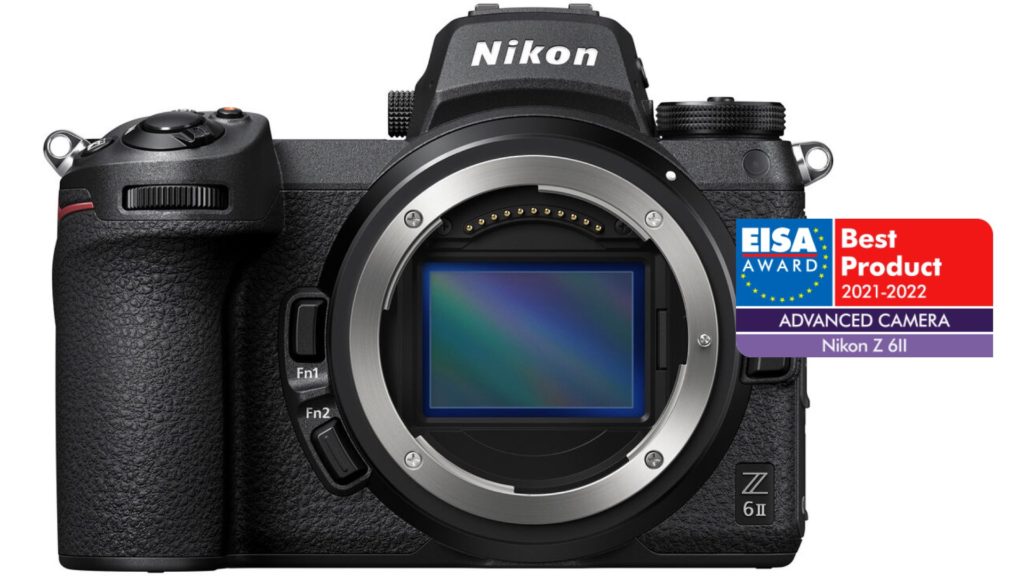
The Nikon Z 6 Mark II is one of the most accomplished cameras available for serious enthusiast photographers.
Canon EOS R5: “Premium Camera”
EISA description: “Canon’s highly-specified mirrorless all-rounder is feature-filled and built to last. It produces extremely sharp, high-resolution 45-million-pixel images while being capable of recording both 8K and 4K videos. It also boasts a high-speed, high-precision Dual Pixel CMOS AF II autofocus system, up to 8 stops of in-body image stabilization, and high-speed continuous shooting at up to 20fps. The AI-based subject-recognition system is capable of detecting and tracking human eyes, faces, and bodies, as well as those of some animals. Combine these features with its robust build and superb handling, and there is probably no assignment that the R5 cannot take care of”.
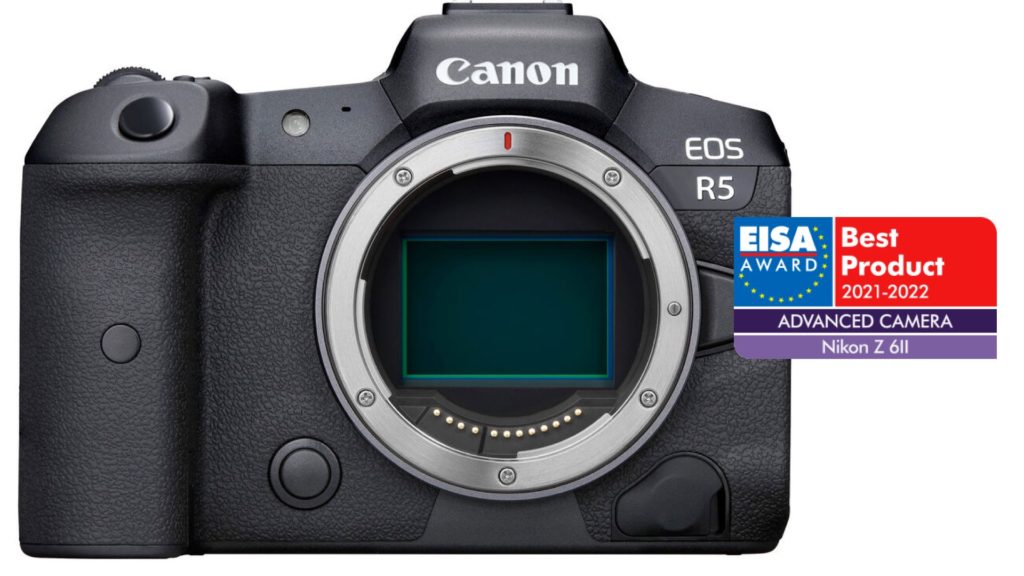
There is probably no assignment that the Canon EOS R5 cannot take care of.
Fujifilm GFX 100S: “Professional Camera”
EISA description: “With the GFX 100S, Fujifilm has packed the groundbreaking features of the GFX 100 into a much more compact and affordable camera. Like its bigger sibling, it employs a 102-million-pixel BSI-CMOS sensor that measures 44x33mm, and which includes phase detection pixels for fast, accurate hybrid autofocus. Its updated sensor-shift in-body image stabilization can now compensate for camera shake by up to 6 stops, which together with the low-vibration shutter, helps photographers get the sharpest possible images when shooting handheld. In Pixel Shift Multi-Shot mode the camera can even generate 400-million-pixel images for the ultimate quality when shooting still life.
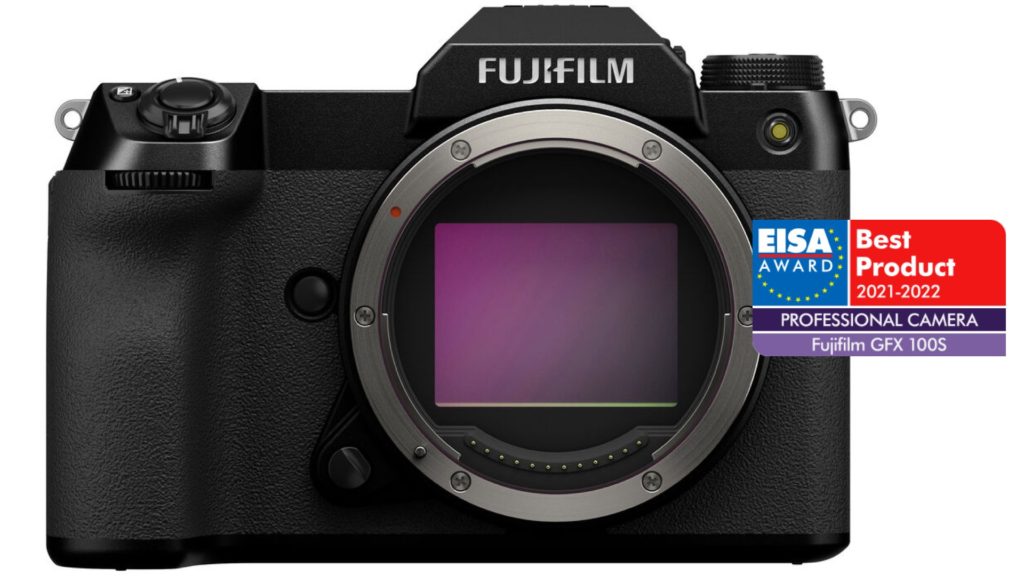
With the GFX 100S, Fujifilm has packed the groundbreaking features of the GFX 100 into a much more compact and affordable camera.
Sony Alpha 7S III: “Photo/Video Camera”
EISA description: “The Sony Alpha 7S III delivers 4K video without any compromise. At its heart is a new 12-million-pixel back-illuminated full-frame Exmor R CMOS image sensor that provides outstanding performance at high ISO sensitivities with minimal rolling shutter effects. Its full-pixel readout enables ultra-sharp and clean video without a crop. In 4K/60p mode the camera can record for more than an hour without overheating, while for slow motion, 4K/120p and Full HD/240p are also available. Internally, the camera records 10-bit footage with 4:2:2 color subsampling; it can also output 16-bit RAW data to a compatible recorder over HDMI. Other highlights include an extremely large, high-resolution 9.44-million-dot viewfinder and a fully articulated touchscreen monitor”.
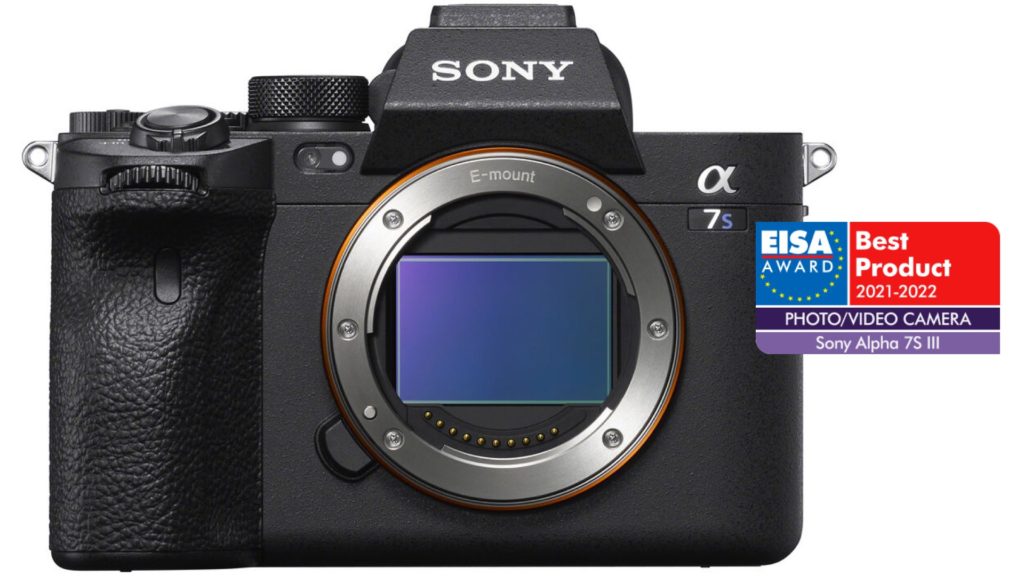
The Sony Alpha 7S III delivers 4K video without any compromise.
Nikon Z 5: ”Best Buy Camera (Full Frame)
EISA description: “The Nikon Z 5 is a compact and lightweight camera equipped with a 24.3-million-pixel full-frame sensor mounted on a mechanical stabilization system. It’s very pleasant to use thanks to a large grip, a joystick to change options quickly, a touchscreen, and a sharp 3.6-million-dot electronic viewfinder. With a maximum sensitivity of ISO 51,200, the Nikon Z 5 can keep shooting in difficult light. Its 273-point autofocus system is very effective and will automatically identify human eyes and faces, as well as those of some pets. The camera can also shoot 4K video, although with a 1.7x crop. Overall, it’s the best-value full-frame camera on the market”.
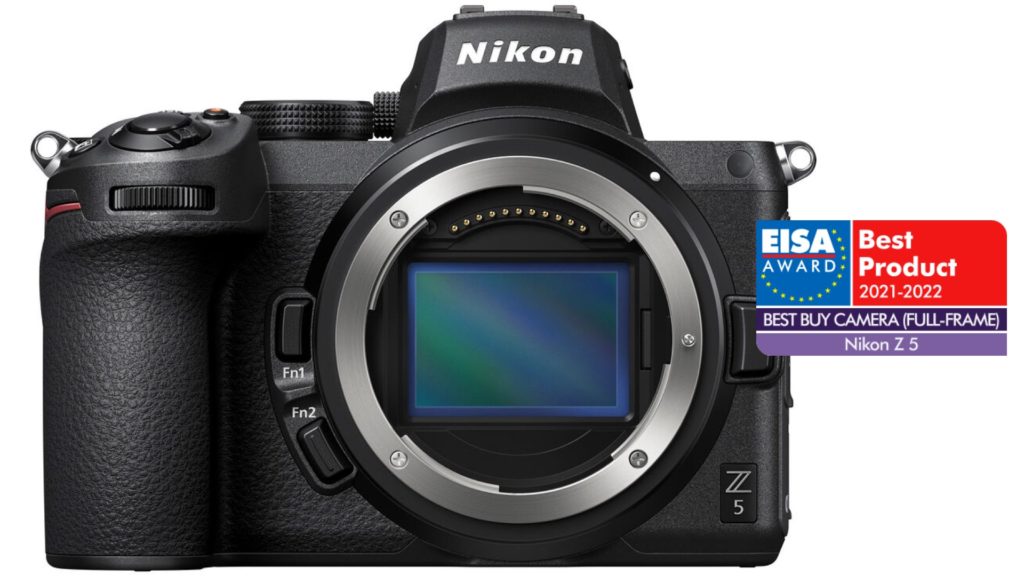
Overall, the Nikon Z 5 is the best-value full-frame camera on the market.
Final thoughts
The EISA Awards present no surprises. The Sony Alpha 1 deserves its place. Nevertheless, no DSLR was picked. There’s all mirrorless. Does it mean that DSLR is dead? Also, what about Canon’s flagship, the 1D X Mark III, which is a …DSLR? Those cameras were chosen by their photography – still capabilities, rather than videography aspects. However, these are pretty solid choices for videographers as well.
What do you think about the winners? Comment below.
Product List
Here’re the products mentioned in the article, and the links to purchase them from authorized dealers.

